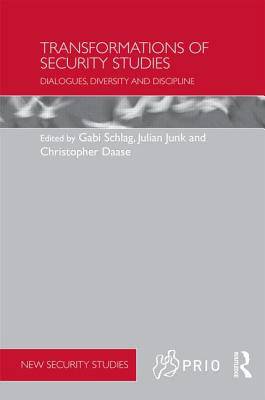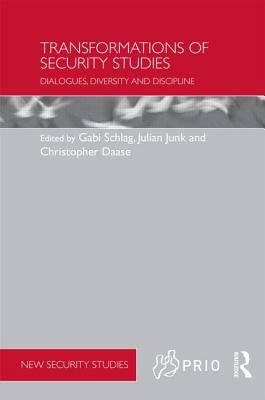
- Afhalen na 1 uur in een winkel met voorraad
- Gratis thuislevering in België vanaf € 30
- Ruim aanbod met 7 miljoen producten
- Afhalen na 1 uur in een winkel met voorraad
- Gratis thuislevering in België vanaf € 30
- Ruim aanbod met 7 miljoen producten
Transformations of Security Studies
Dialogues, Diversity and Discipline
Omschrijving
This volume brings together a group of distinguished scholars to engage in a dialogue on key developments in the study of security.
The book provides a comprehensive overview of theoretical, empirical and methodological developments within security studies, whose political and societal importance has grown significantly in recent years. By bringing together scholars who hold differing perspectives on security, this volume provides insights into a variety of approaches and their newest developments, including 'mainstream' as well as heterodox perspectives on security. Thus, it aims to build bridges of communication between different 'camps' by initiating a dialogue on the identity and diversity of security studies. It does so in three parts: The first part of the book includes paradigmatic approaches to security that are closely connected to major debates in International Relations such as realism, institutionalism, constructivism as well as approaches to the culture, ethics of security and critical security studies. The second part places emphasis on the broadening and deepening of the concept of security in recent decades. It discusses key empirical frontiers including the continued centrality of the state, the link between democracy and security, environmental security as well as financial security. The third part of the book presents various methodological approaches to the question of security and peace. It provides an overview of new approaches such as the visual turn, quantifying security and method combinations.
This book will be of much interest to students of critical security studies, international relations and research methods.
Specificaties
Betrokkenen
- Uitgeverij:
Inhoud
- Aantal bladzijden:
- 264
- Taal:
- Engels
- Reeks:
Eigenschappen
- Productcode (EAN):
- 9781138899490
- Verschijningsdatum:
- 5/11/2015
- Uitvoering:
- Hardcover
- Formaat:
- Genaaid
- Afmetingen:
- 156 mm x 234 mm
- Gewicht:
- 548 g

Alleen bij Standaard Boekhandel
Beoordelingen
We publiceren alleen reviews die voldoen aan de voorwaarden voor reviews. Bekijk onze voorwaarden voor reviews.










